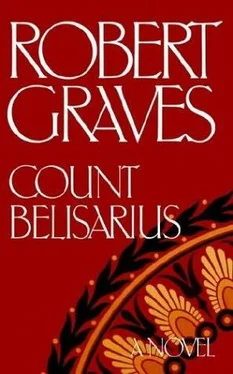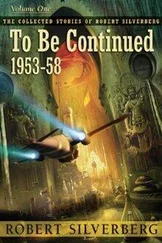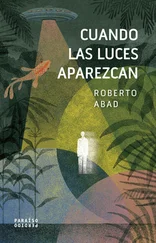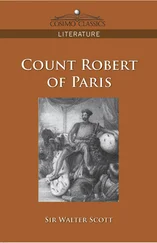Robert Graves - Count Belisarius
Здесь есть возможность читать онлайн «Robert Graves - Count Belisarius» весь текст электронной книги совершенно бесплатно (целиком полную версию без сокращений). В некоторых случаях можно слушать аудио, скачать через торрент в формате fb2 и присутствует краткое содержание. Жанр: Исторические приключения, на английском языке. Описание произведения, (предисловие) а так же отзывы посетителей доступны на портале библиотеки ЛибКат.
- Название:Count Belisarius
- Автор:
- Жанр:
- Год:неизвестен
- ISBN:нет данных
- Рейтинг книги:3 / 5. Голосов: 1
-
Избранное:Добавить в избранное
- Отзывы:
-
Ваша оценка:
- 60
- 1
- 2
- 3
- 4
- 5
Count Belisarius: краткое содержание, описание и аннотация
Предлагаем к чтению аннотацию, описание, краткое содержание или предисловие (зависит от того, что написал сам автор книги «Count Belisarius»). Если вы не нашли необходимую информацию о книге — напишите в комментариях, мы постараемся отыскать её.
Count Belisarius — читать онлайн бесплатно полную книгу (весь текст) целиком
Ниже представлен текст книги, разбитый по страницам. Система сохранения места последней прочитанной страницы, позволяет с удобством читать онлайн бесплатно книгу «Count Belisarius», без необходимости каждый раз заново искать на чём Вы остановились. Поставьте закладку, и сможете в любой момент перейти на страницу, на которой закончили чтение.
Интервал:
Закладка:
So this was the first of the three oaths he swore; and the second was to his Emperor — to the old Emperor Anastasius, in whose reign he was born, and subsequently to the two successors of Anastasius; and the third oath was to my mistress Antonina as his wife. These remarks will serve as preface to the work which follows, which I am writing in extreme old age at Constantinople in the year of our Lord 571; which is the thirteen hundred and sixth year from the foundation of the City of Rome.
Belisarius was born in the year of our Lord 500, and his mother regarded this as ominous. For the Devil was, she believed, allowed dominion on this earth for a thousand years, and at the close of this time mankind would finally be redeemed: therefore the year of her only son's birth came, as she said, in the very centre of the long black night dividing the first day of glory from the second. But I, Eugenius the Eunuch, confess that I regard such opinions as superstitious and altogether unworthy of sensible persons; nor did my dear mistress Antonina think otherwise in these matters.
This young Belisarius dutifully said good-bye to his mother and the household retainers, who (taking the slaves with the free and counting in children and old people) numbered some two hundred souls; and mounting his fine white pony rode towards Adrianople. There accompanied him John, the bailiff's son, an Armenian boy of his own age who had played the part of Belisarius's lieutenant in the small private army he enrolled from children living on the estate; and Palaeologus, a Greek tutor who had already taught him the rudiments of reading and writing and ciphering; and two Thracian slaves. Palaeologus was unarmed, but the slaves carried swords, and Belisarius and Armenian John had light bows suitable to their strength with a few good arrows. These boys were already very handy with their bows, both on foot and when mounted; as might be expected. For the Armenians are a sturdy race and Belisarius was of Slavonic stock — as his name Beli Tsar, meaning the White Prince, indicates; the heathen Slavs, who live beyond the River Danube, are notable archers and horsemen. His father's family had been settled at Tchermen for a hundred years, and was wholly Romanized and had been raised to the second of the three ranks of nobility.
This journey from Tchermen was by the fields, not by the main road from Constantinople to Adrianople, which passes near this village. Several times Belisarius and John, with their tutor's permission, rode off the track in pursuit of game; and Belisarius was fortunate enough to shoot a hare, which provided a meal for them that night at the inn where they proposed to lodge. It was only a small inn, not much frequented, and the old landlady was in deep distress: her husband had recently been killed by the fall of an elm-branch while tending his vines, and their man-slave had thereupon run off, stealing the only horse in the stables, and might be anywhere by now. She had only a young girl slave left, who inexpertly tended the animals and vines while she herself worked in the house. The travellers perceived that at this inn they must provide their own food and do their own cooking. Of their two slaves, one was a porter, a strong, brave man without knowledge or adaptability, and the other was a youngster, Andreas, who had been trained as a bath-attendant; neither of them could dress a hare. Palaeologus sent the porter off to gather firewood and draw water, and set Andreas at scouring the greasy inn-table with sand. He himself skinned and jointed the hare, which presently was simmering in a pot with bay-leaves and cabbage and barley and a little salt. Armenian John stirred the pot with a horn spoon.
Belisarius said: 'I have a packet of black peppercorns from Ceylon, which my mother is sending by me as a present for my Uncle Modestus. I like this Indian pepper. It stings the mouth. It will not detract much from the gift if I grind a few peppercorns in the little hand-mill that goes with it, to flavour our hare-soup.'
He opened his saddle-bag and took out the packet of peppercorns and the hand-mill and began grinding. Being only a child, he ground too much for a meal for five persons; until Palaeologus, observing him, exclaimed:' Child, that is enough pepper for a Cyclops!' Then, while the hare was stewing, Palaeologus told them the talc, which they had not heard previously, of Ulysses in the Cyclops' cave and how he charred a stake in the fire and, making the Cyclops drunk, thrust out his one eye with the flaming point. The boys and the slaves listened laughing; for Palaeologus, quoting the play of Euripides, was very droll in his imitation of the stricken Cyclops. Then they set the table for three — the slaves would cat apart afterwards — and poured wine into the cups from a smoky earthenware wine-jar that they found in a cupboard. The slave Andreas cut slices of bread for them with his hunting-knife.
At last the meal was practically ready, the hare only wanting a few more minutes to be cooked. Palaeologus had added to the pot two or three spoonfuls of wine and a pinch or two of pepper and a small sprig of rosemary and a little sour sorrel which the old woman fetched from the back-garden. Every now and then they tasted the soup with the horn spoon. Four tallow candles had just been lighted, which it was Andreas's duty to snuff when the wick grew cauliflowered. But at this happy moment a great noise was heard at the door and in burst six truculent armed men, Asiatic Greeks by their speech, and disturbed everything.
With them they had a decently dressed, mild-featured young man, bound hand and foot so that he could not walk. He seemed a well-to-do artisan or tradesman. The leader, a very burly fellow, carried this prisoner on one shoulder like a sack of grain and flung him into the corner by the fire — I suppose because this was the place farthest from the door, if he should try to escape. The man was plainly desperate and in full expectation of being murdered. His name, it proved later, was Simeon, a burgess of that district. It had fallen to him by lot to go on behalf of his fcllow-burgesses to a great land-owner named John of Cappadocia, begging him to pay the land tax due from him, or at least a part of it — an obligation which this rich young man had long evaded. Now, the district was called upon to pay so many pounds of gold annually to the Imperial Treasury, and the lands of John of Cappadocia were assessed at a rate which was less than their value indeed, but which amounted to one-third of the total tax of the whole district. The burgesses, because of bad harvests and a recent plundering raid by the Bulgarian Huns and being assessed greatly above the value of their holdings- they had been presented by the Government with worthless strips of country, all marsh and stone, yet valued as good farm-land — were so deeply in debt as to be nearly ruined unless John of Cappadocia consented to pay his share. But he always refused. He had a retinue of armed men, mostly his own Cappadocians, as these six fellows all were, who insulted and beat the representatives of the burgesses when they came to his castle to sue for payment.
In my story there are likely to be many Johns besides these Armenian and Cappadocian Johns, John being the name that foreigners commonly take when baptized into the Christian faith (calling themselves either after John the Baptist or John the Evangelist), or that Christian masters give their slaves. It is also frequent among the Jews, with whom it originated. So we shall distinguish these Johns either by their country of origin or, if that happens to be insufficient, by their customary nick-names: John the Bastard, John the Epicure, and Bloody John among the rest. But there is only one Belisarius in my story, and he as unusual as his name.
It appeared, then, from the boasts of the Cappadocians and the complaints of this wretched Simeon, that he had gone boldly with an armed body of constabulary to the castle of Cappadocian John, intending to overawe him into paying at least a reasonable part of his debt, but had been set upon with swords and clubs by the armed guard at the gate-house. The constabulary had deserted Simeon at once, so that he was captured. Then Cappodocian John himself, who was spending the autumn on his estate for the hunting and fowling, had come swaggering out and asked the sergeant of the guard who this fellow might be. They made a low obeisance to John, who exacted from them the sort of respect a patriarch or the governor of a Diocese is usually given, and answered: 'A sort of strange tax-gatherer, if it please your worship.' Cappadocian John cried: 'Give him a sort of strange end, so that no tax-gatherer may trouble me again on my Thracian estates.' Then six of them, led by the Sergeant, bound Simeon hand and foot and put him across a horse and rode off with him at once, hoping to please their master by their alacrity.
Читать дальшеИнтервал:
Закладка:
Похожие книги на «Count Belisarius»
Представляем Вашему вниманию похожие книги на «Count Belisarius» списком для выбора. Мы отобрали схожую по названию и смыслу литературу в надежде предоставить читателям больше вариантов отыскать новые, интересные, ещё непрочитанные произведения.
Обсуждение, отзывы о книге «Count Belisarius» и просто собственные мнения читателей. Оставьте ваши комментарии, напишите, что Вы думаете о произведении, его смысле или главных героях. Укажите что конкретно понравилось, а что нет, и почему Вы так считаете.












